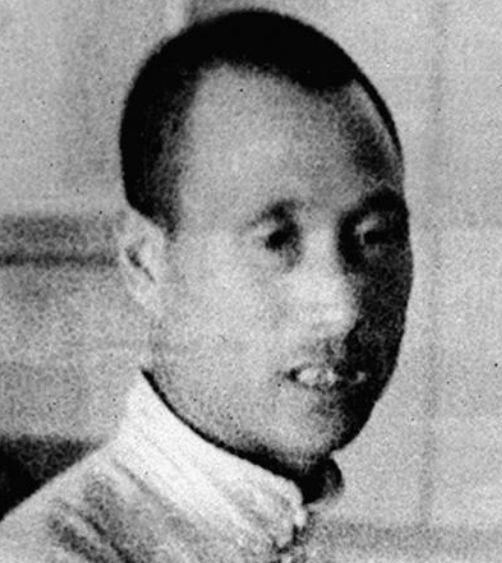Text: Gulf of Tonkin
Speaking of Yu Huahu, in Wenshan Hou Village in Haiyang, Shandong Province, it can be said that everyone knows. This young man, whose original name was Ding Jinsheng, single-handedly set a record for killing and wounding 171 enemy Kou with mines during the War of Resistance. In his battle book, there was also a legendary achievement of "killing and injuring seven enemies with one thunder". So, in addition, how did this militia hero write his own legend? In 1940, Yu Huahu, dissatisfied with the Japanese and puppet occupying the mountains and hegemonizing the enemy, participated in the anti-Japanese activities. He mobilized the young and middle-aged people in the village to form a militia guerrilla group of more than 50 people. Not only that, they also contacted the surrounding Zhao Hitomi, Xiangjia, Sunjia, and Box Village, and used homemade rudimentary weapons, earthen cannons, large knives, and even mines to resist the Japanese puppet army that "swept up" the countryside. Because of this, these five villages are also called "Five Tiger Villages" by the people.

▲ Militia hero Yu Huahu (1914-2004)
▲Yu Huahu (first from the left) when participating in the National Militia Competition
In the difficult struggle, the villagers of "Five Tiger Village" have continued to innovate and invented more than 20 kinds of various types of landmines. Among them, Shi Lei's invention is quite legendary: at that time, the Japanese army directly set up bunkers and turrets around the "Five Lakes Village", and it can be said that it was more difficult to remove these "nail households" in terms of the strength of the militia guerrillas. How to resist the enemy's attack has become the most headache for the militia. Due to the lack of gunpowder and other sharp tools for making mines, Yu Huahu wondered why he could not replace them with the ready-made things around him. He remembered that the stonemason had blown up the stone mountain nearby, so he led the warrior to the mill to find a stone, and put a hole in the top, installed a fuse, and then detonated. After a loud noise, the flying stones exploded for about ten meters! In this regard, the "stone thunder" that made the Japanese hypocrites feel frightened was born! In the spring of 1943, a brigade of the Japanese puppet army and more than 500 people launched a joint offensive against the "Five Tiger Village". Yu Huahu's explosive team buried more than 70 stone mines at various intersections under the mountain. Due to the lack of detonators, each detonation of a stone mine had to be lit by militiamen. When the enemy approached, the rocks on the mountain suddenly "exploded". The smashed and dizzy Japanese puppet army did not know at all, so it thought that the "Eight Roads" had used some new weapons, and rushed to flee.
▲ The "Five Tiger Village" militia that set up tripping mines.
▲ Militia hero Yu Huahu Memorial Hall.
In 1943, the unwilling Japanese puppet army concentrated a thousand troops and launched a sweeping operation against the "Five Tiger Village", threatening to level the "Five Tiger Village". However, under the "chain of thunder" blows of Yu Huahu, these thousand enemies were actually bombed and could not move forward, and suffered heavy casualties. In the spring of 1944, the "hero of the explosion" also sent mines to Japanese and pseudo-Japanese strongholds, and took advantage of the night to lay mines under the desks of the enemy. In the summer of that year, the Japanese puppet army, which was overwhelmed by attacks and lacking troops, finally lost its courage and abolished all the strongholds around the "Five Tiger Villages", and the remnants fled back to Haiyang County. In recognition of Yu Huahu's courageous spirit in fighting against the enemy, his superiors specially gave him a landmine, and wrote four big red characters on it: "Live Thunder And Transform the Tiger." On the land of Jiaodong, Yu Huahu's figure is active in Haiyang, Penglai, Huangxian and Jimo. He alone cultivated as many as 1400 militia bombers, including 120 "explosive models". In the Battle of Penglai, he planted 21 mines at the city gate, and when he went out of the city to rob on the same day, he fired 18 mines in a row, killing and injuring 29 people immediately. In 1945, Yu Huahu was awarded the titles of "Explosion King" and "Jiaodong Battle Hero" by his superiors, becoming a veritable "Qilu Explosion King!" ”
▲ Comic strip: Explosion hero Yu Huahu.
▲ Enterprising Qilu militia guerrillas.
This article is the original work of the fortification area, the editor-in-chief of the original outline, the original Beibu Gulf. Any media or public account shall not be reproduced without written authorization, and violators will be investigated for legal responsibility